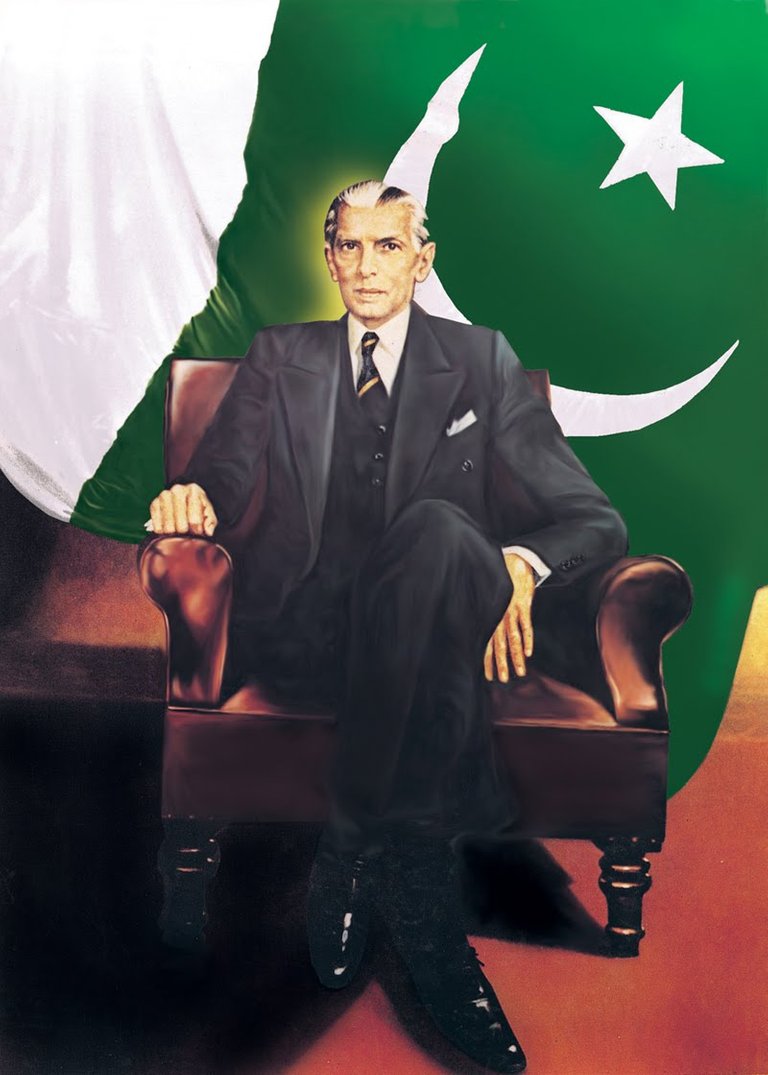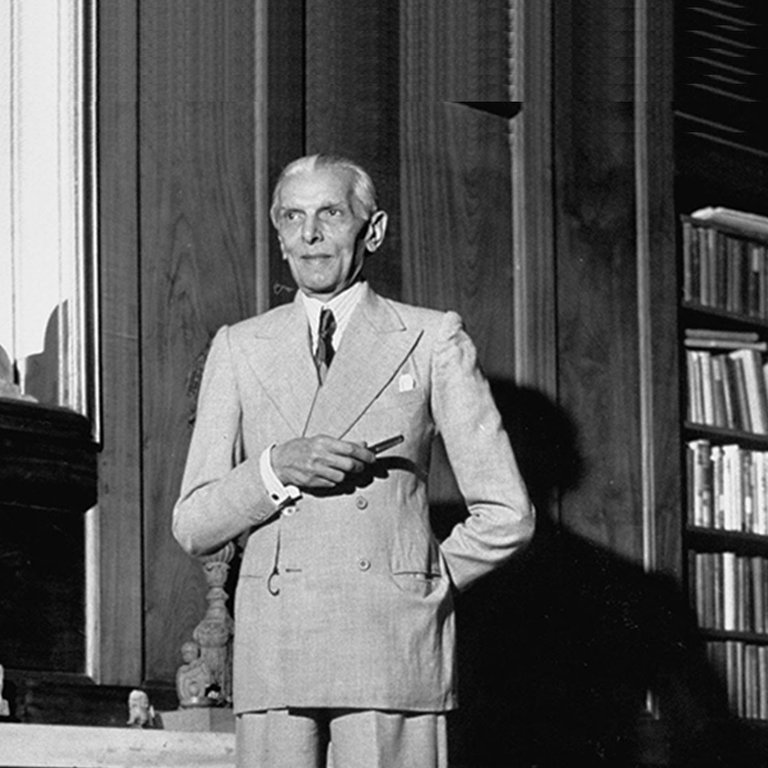
Source http://www.jinnahofpakistan.com/2010/04/legend.html

Source http://pid.gov.pk/site/profile/1

Source https://nationaltoday.com/quaid-e-azam-day/
Once upon a time, in a land known as British India, there was a remarkable man named Muhammad Ali Jinnah, who would later be hailed as Quaid-e-Azam, meaning "Great Leader." Born on December 25, 1876, in the bustling city of Karachi, young Jinnah showed great intelligence and determination from an early age.
As a child, Jinnah dreamt of making a difference and achieving freedom for his people. He pursued his education with zeal, attending the renowned Sindh Madrasatul Islam and later studying law in England. Jinnah's dedication and intellect led him to become a distinguished lawyer, earning a reputation for his brilliance in the courtroom.
Jinnah's political journey began when he joined the Indian National Congress, an organization fighting for Indian independence from British rule. However, he soon realized that the Congress's approach did not fully represent the interests of the Muslims of India, who faced unique challenges and aspirations. This realization prompted Jinnah to dedicate his efforts towards safeguarding the rights and welfare of his fellow Muslims.
In 1906, Jinnah played a pivotal role in the formation of the All India Muslim League, which aimed to protect the rights of Muslims and provide a platform for their political representation. Over the years, Jinnah's leadership skills and unwavering commitment propelled him to the forefront of the league, earning him the title of Quaid-e-Azam.
Quaid-e-Azam's vision and eloquence resonated with Muslims across the subcontinent. He tirelessly advocated for the idea of a separate homeland for the Muslims, where they could live freely and govern themselves. This vision became known as the demand for Pakistan.
In the face of immense opposition and challenges, Quaid-e-Azam stood firm and led the Muslim League towards its goal. His diplomatic prowess and unwavering determination eventually compelled the British to accept the partition of India, leading to the creation of Pakistan on August 14, 1947.
As Pakistan's first Governor-General, Quaid-e-Azam faced numerous trials. He worked tirelessly to establish a strong foundation for the newly formed nation, promoting unity, religious tolerance, and social justice. Despite his failing health, he continued to guide Pakistan towards progress until his untimely demise on September 11, 1948.
Quaid-e-Azam Muhammad Ali Jinnah's life was one of immense sacrifice and unwavering commitment to his people. His leadership and vision paved the way for the creation of Pakistan, a homeland where Muslims could live with dignity and freedom. His legacy continues to inspire generations, reminding us of the power of perseverance, determination, and the pursuit of justice.
Thus, the tale of Quaid-e-Azam's extraordinary life serves as a shining example of how one person's unwavering dedication can shape the destiny of a nation and leave an indelible mark on history.